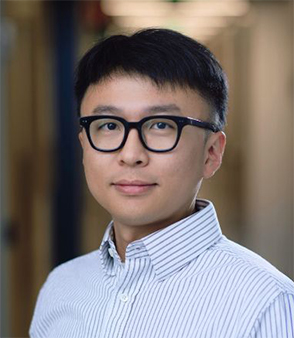Yu receives early career research award
Qing Yu received a research award from the American Society for Mass Spectroscopy. These awards are typically given within the first four years of joining the tenure track or research faculty of a North American university. Yu will receive $35,000 to fund his research.

Yu is an assistant professor of biochemistry and molecular biotechnology at the University of Massachusetts Chan Medical School. His research focuses on understanding the proteotype, the complete interactive set of proteins expressed by an organism or in a cell. Yu and his team seek to unravel the complexities of the proteotype, looking at cellular signaling and other molecular mechanisms.
“I’m deeply honored to receive the ASMS Research Award and grateful to be recognized alongside such an amazing group of scientists,” Lu posted on social media. “It wouldn’t have been possible without the incredible collaborators and mentors I’ve had the privilege to work with. I’m excited to continue pushing the boundaries of mass spectrometry with the support of this incredible community.”
Enjoy reading ASBMB Today?
Become a member to receive the print edition four times a year and the digital edition monthly.
Learn moreGet the latest from ASBMB Today
Enter your email address, and we’ll send you a weekly email with recent articles, interviews and more.
Latest in People
People highlights or most popular articles

Simcox wins SACNAS mentorship award
She was recognized for her sustained excellence in mentorship and was honored at SACNAS’ 2025 National Conference.

From humble beginnings to unlocking lysosomal secrets
Monther Abu–Remaileh will receive the ASBMB’s 2026 Walter A. Shaw Young Investigator Award in Lipid Research at the ASBMB Annual Meeting, March 7-10 in Washington, D.C.

Chemistry meets biology to thwart parasites
Margaret Phillips will receive the Alice and C. C. Wang Award in Molecular Parasitology at the ASBMB Annual Meeting, March 7-10 in Washington, D.C.

ASBMB announces 2026 JBC/Tabor awardees
The seven awardees are first authors of outstanding papers published in 2025 in the Journal of Biological Chemistry.

Decoding how bacteria flip host’s molecular switches
Kim Orth will receive the Earl and Thressa Stadtman Distinguished Scientists Award at the ASBMB Annual Meeting, March 7–10, just outside of Washington, D.C.

Thiam elected to EMBO
He was recognized during the EMBO Members’ Meeting in Heidelberg, Germany, in October.

